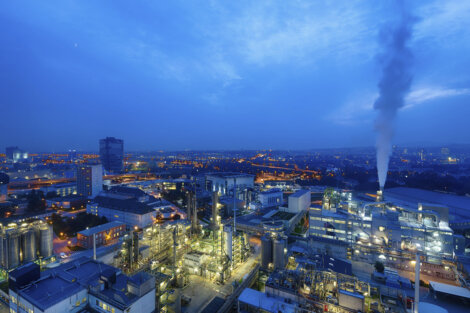Hydrogen
Borealis and Verbund announce joint industrial- scale hydrogen production plan
The joint project taking place within the framework of the pan-European IPCEI (Important Projects of Common European Interest) process entails the production of green hydrogen at an industrial electrolysis plant (60 MW) using electricity from renewable sources and deionised water.
-
By ICN Bureau | October 07, 2022
Borealis and VERBUND are planning a joint project in which green hydrogen will be used to produce fertilizers, melamine and technical nitrogen.
Green hydrogen is the key to decarbonising industrial products and processes, particularly in areas that are difficult or impossible to electrify. Borealis and VERBUND have initiated a decarbonisation project that will use green hydrogen to produce fertilizers, melamine, and technical nitrogen on an industrial scale in a more sustainable way.
The joint project taking place within the framework of the pan-European IPCEI (Important Projects of Common European Interest) process entails the production of green hydrogen at an industrial electrolysis plant (60 MW) using electricity from renewable sources and deionised water. The green hydrogen will be used to produce fertilizers, melamine and technical nitrogen at Borealis operations in Linz, Austria. The oxygen generated by water splitting in the course of the electrolysis process will be used directly in production. The electrolyser will also provide grid services for the transmission network. The electrolysis plant is scheduled to commence operations in 2025, with projected annual CO2 emissions reductions of up to 90,000 tons.
“Green hydrogen is a crucial lever in driving the energy transition. One of our strategic goals is to establish VERBUND as a key hydrogen player,” says Michael Strugl, CEO VERBUND. "As a partner to industry, we are implementing joint projects that contribute to the decarbonisation of industrial processes and the achievement of climate targets."
"We are pleased to continue the successful co-operation with VERBUND in Linz in order to jointly develop solutions for the energy transition," says Borealis CEO Thomas Gangl. "For Borealis, green hydrogen is an alternative to natural gas in ammonia production, and using it will lead to a reduction in CO2 emissions. This joint effort is another example of how we are re-inventing essentials for sustainable living."
With its approval in mid-September of IPCEI projects, including the green hydrogen project between partners Borealis and VERBUND, the European Commission has now given the green light for an entire series of hydrogen projects in Europe.
